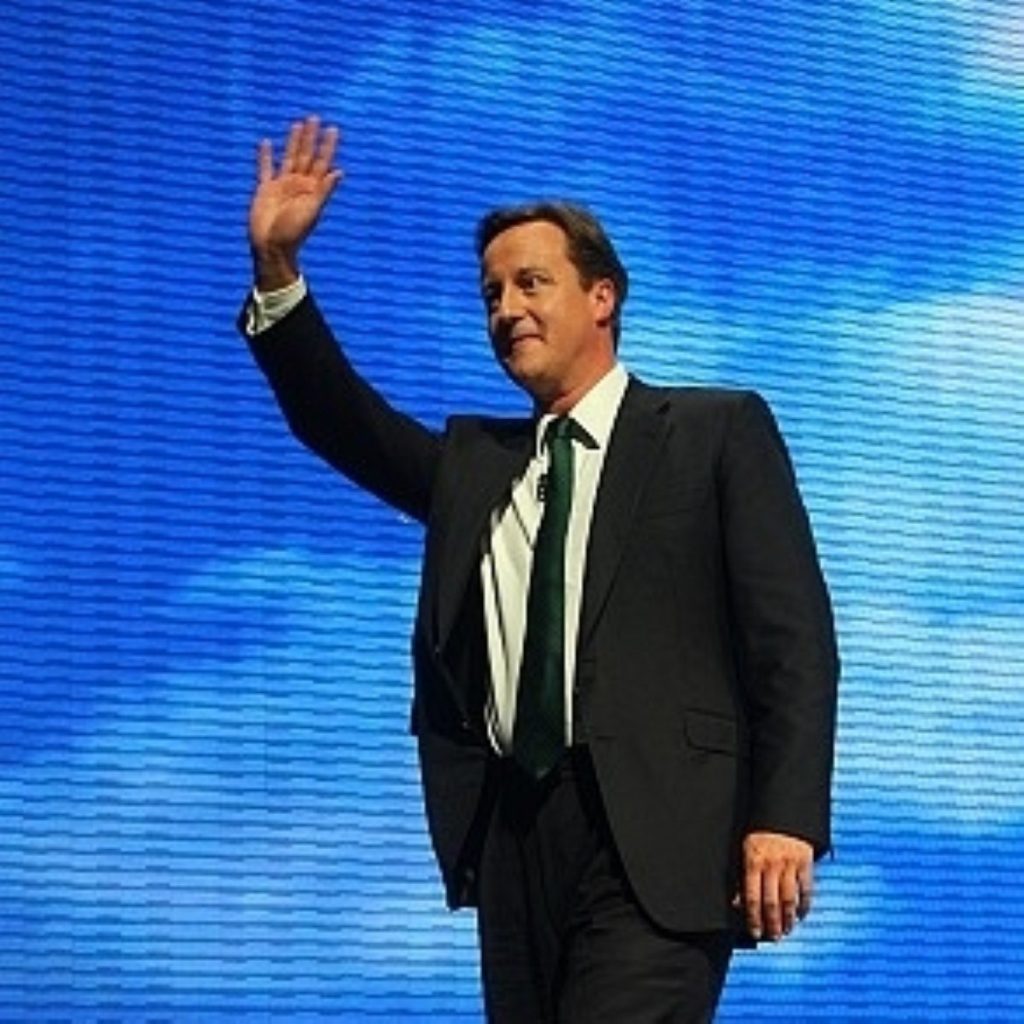Cameron promises ‘radical’ Tory govt
A Conservative government will approach its reforms with a “radical zeal”, David Cameron has promised.
In a speech to the Scottish Conservative party conference in Perth littered with rhetorical flourishes Mr Cameron pledged that achieving even half of his planned reforms would mean “the biggest change in how the country is run in a generation”.
He repeated his claims about Britain’s economy and society being “broken” and attacked Labour for “the shocking economic mess” his party would be left.


“Everyone knows that another five years of Gordon Brown can’t possibly solve these problems. But a modern, radical Conservative government will,” he promised.
“No, we will not go back to the old Conservative party. No, we will not play it safe when the country’s problems are so great.”
He added: “If we win the election, we are not going to sit back, get comfortable in our ministerial chairs and enjoy the chauffeur-driven cars.
“We are going to come in and from day one start attacking the great challenges this country faces with a radical zeal.”
Mr Cameron’s speech to the national party’s autumn conference last year was preceded by a video outlining the progress the party had made under his leadership since he took over after the 2005 election defeat.
Continuing the trend, Mr Cameron claimed he had transformed the Tories into a “modern” party.
“Conservative means, progressive ends. That’s what we are about,” he said. “That is why this party had to change.”
“We made our choice. We changed our party. And I want to thank every single one of you for the faith and the determination and the passion you have shown in making this modern Conservative Party a force for good that we can all be proud of. “
Mr Cameron used his speech to begin overtures to the Scottish National party (SNP.
He called for the relationship between the British and Scottish governments to improve after relations between the SNP and Labour soured.
“If elected, one of the first things I will do is come to Scotland and meet with the first minister,” he promised.
“That will signal the beginning of a new relationship, a fresh start, based on mutual respect. It will be good for Scotland, good for Britain and good for the Union.”
The release of Abdelbaset al-Megrahi on August 20th 2009 demonstrated the British government’s lack of influence in Holyrood, as Mr Cameron pointed out.
If the Tories win the election Mr Cameron will attempt to improve contacts with more regular meetings. At present his party has just one MP north of the border, while the SNP views Labour as its main threat in the coming Westminster elections.
Mr Cameron restated his commitment to the union and reaffirm his interest in bringing forward the next-step proposals on devolution raised by the Calman Commission.
“Today we are the party that passionately believes that local is best, the party that knows that the more power people have, the more responsible they become, the more fulfilled they are – we are the party of decentralisation,” he said.
The SNP’s constitutional affairs spokesman Pete Wishart reacted to the olive branch with suspicion.
“If the Tories are committed to a new relationship with Scotland, they should start treating the people of Scotland with some real respect and back a free and fair vote on Scotland’s constitutional future,” he said.
Mr Cameron was not the only politician appearing in Scotland today.
Chancellor Alistair Darling told a conference in Edinburgh that the Conservatives “appear to have no plan” on dealing with the economy.












